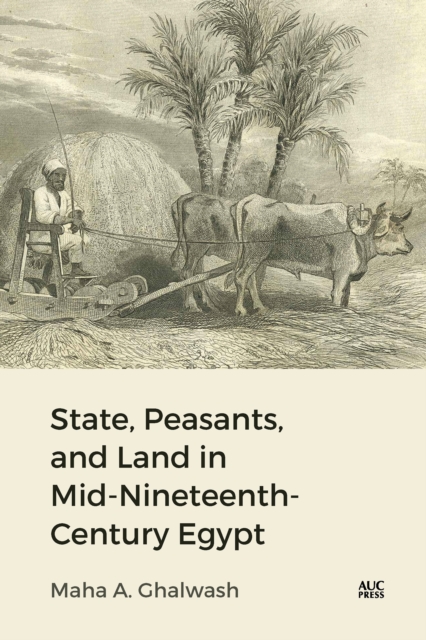
State, Peasants, and Land in Mid-Nineteenth-Century Egypt Hardback
by Dr. Maha A. Ghalwash
Hardback
Description
An alternative reading of the relationship between the state and smallholder peasants in mid-nineteenth-century EgyptThis book examines the rural history of Egypt during the middle years of the nineteenth century, a period that is often glossed over, or altogether forgotten.
Drawing on a wide array of archival sources, some only rarely utilized by other scholars, it argues that state policy targeting the peasant land tenure regime was informed by the dual economic principles of the Ottoman, or traditional, philosophy of statecraft, and that the workings of the relevant regulations did not produce extensive peasant land loss and impoverishment. Maha Ghalwash presents a rich, detailed analysis of such crucial issues as land legislation, tax impositions, the system of tax collection, modes of land acquisition, large-scale peasant abandonment of land, the emergence of surplus lands, the formation of large, privileged estates, distribution of village land, female land inheritance, and the nature of peasants’ political activity.
In investigating these issues, she highlights peasant voices, experiences, and agential power. Traditional interpretations of the rural history of nineteenth-century Egypt generally specify an avaricious state, so indifferent to peasant well-being that it consistently developed harsh policies that led to unremitting, extensive peasant impoverishment.
Through an examination of the relationship between the absolutist state and the majority of its subject population, the peasant smallholders, during 1848–63, this study shows that these ideas do not hold for the mid-century period.
State, Peasants, and Land in Mid-Nineteenth-Century Egypt will be of interest to students of Middle East history, especially Egyptian rural history, as well as those of peasant studies, subaltern studies, gender studies, and Ottoman rural history.
Information
-
Less than 10 available - usually despatched within 24 hours
- Format:Hardback
- Pages:328 pages
- Publisher:American University in Cairo Press
- Publication Date:16/05/2023
- Category:
- ISBN:9781649032775
Information
-
Less than 10 available - usually despatched within 24 hours
- Format:Hardback
- Pages:328 pages
- Publisher:American University in Cairo Press
- Publication Date:16/05/2023
- Category:
- ISBN:9781649032775






